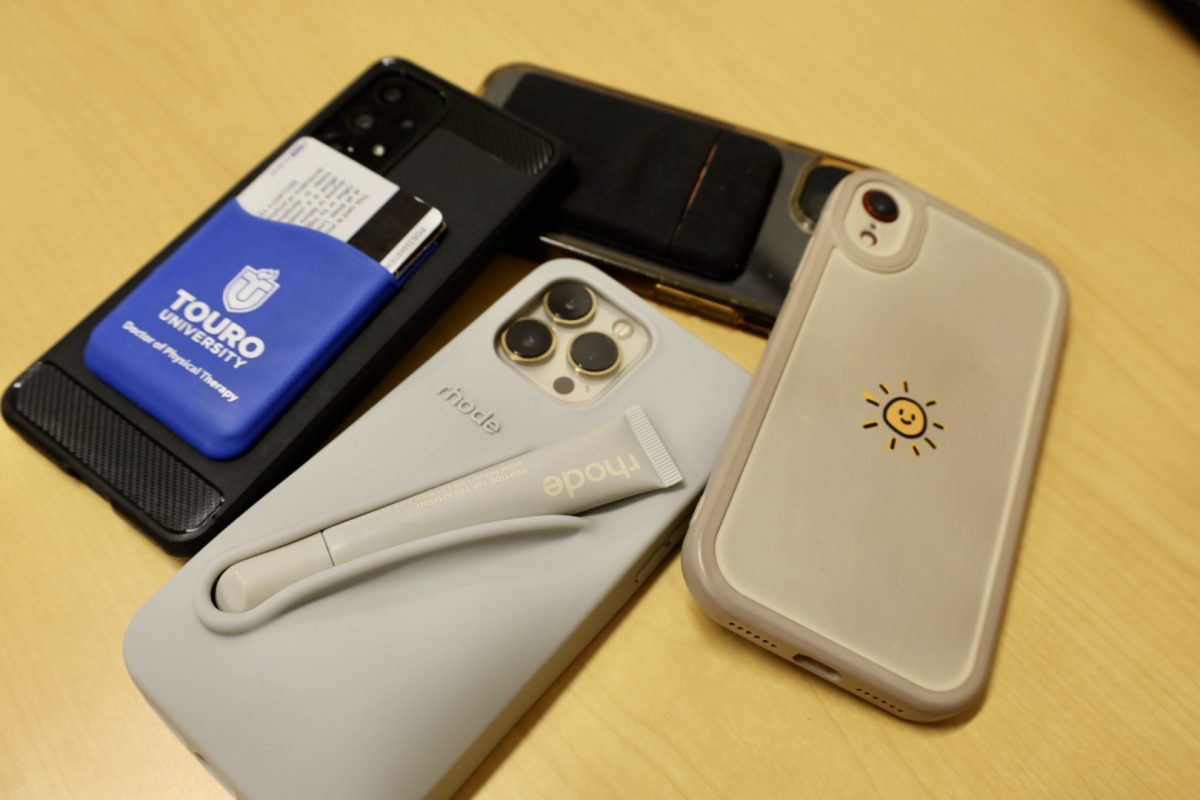How close is your phone to you right now? Are you reading this article on it? Do you ever find yourself worrying about your technology habits? You aren’t alone — according to a survey conducted in 2023 by Reviews.org, more than 56.9% of Americans admit to feeling addicted to their phones.
In our world of rapidly evolving technology, engaging with electronics is becoming more and more inevitable. College students are especially prone to overuse issues due to the increased need for technology. At Fordham University, we need technology for everything on campus, from booking library study rooms to making a reservation on the Ram Van, as well as approving Duopush notifications on our phones.
Even in times when we may want to leave behind this extra appendage, we are forcibly connected at the hip to the newest iPhone or folding Samsung. For example, QR-code menus are becoming commonplace in most restaurants, leaving customers to hunch over their phones, zooming in, fighting against screen orientation locks and tables with slow internet. In the same Review.org study, 75% of Americans responded affirmatively when asked if they felt uneasy leaving their phones at home, which is an increasingly prevalent issue while most major services are becoming reliant on client smartphones.
While some of this comes down to a matter of convenience such as using your smartphone as a morning alarm, many phone’s functions open doors to new levels of co-dependency with technology. When used as an alarm clock, your phone becomes the first thing you touch in the morning, whether intentionally or not. As an iPhone user specifically, I am aware of the features on Apple devices that draw users in. The hottest smartphone fad now: tracking. There is a tracker for everything now. We started with steps per day and moved on to sleep trackers. iPhones have the option to measure screen time, though for some, it only encourages obsessive behaviors.
Now, nearly every app you download offers some sort of tracking capability. Some track how many times you pick up your phone (How many of those pick-ups were to check your pick-up tracker?). Others like Spotify famously tracks annual minutes listened, Goodreads counts books read, Letterboxd manages movies watched and Strava logs miles ran. Do we track these things because we truly need to, or because we want others to know we read four books last June, thought “Saltburn” deserved 3.5 stars and ran three miles faster than they did? This excessive bookkeeping does more than make note of our habits and hobbies — a pencil and paper could do that — but keeps us tied to our phones. We need everyone to know what we’ve been up to and expect them to keep us posted, too.
I am always looking for ways to reduce my phone to only its most basic functions. In 2022, I deleted my Instagram and other social media from my phone when I felt like the noise was too loud. I periodically comb through my app library and delete ones that aren’t necessary. My friends (and the New York Times app) have become my news sources — though sometimes I hear about pop culture news and peer drama months later after everyone realizes they forgot to tell me so-and-so started a podcast and what’s-his-name dropped out of school. Not only has this improved my productivity, but it has also diminished the endless streams of information I find both unhelpful and overwhelming.
Author Jonathan Haidt who co-wrote the book “The Coddling of the American Mind,” taught a new class at New York University called “Flourishing.” In a conversation with the New York Times last month, Haidt shared that he considers smartphone usage in children and adolescents the “great rewiring of childhood” and used his class to help students interpret the tech world we live in. He encouraged his students to turn off notifications on their phones for all but five apps and rethink their relationships with their devices.
Last December, New York Times reporter Kashmir Hill switched from her iPhone 15 to a $100 flip phone in an effort to “correct course with the existing tech that already felt out of [her] control.” She chronicled her trials and tribulations in an article on her experience after citing her relationship with her smartphone as her “biggest regret of 2023.” Though a switch like this is unattainable for the average person, there are ways to wean yourself off of complete reliance on, or addiction to, modern technology. While it has its benefits like staying in touch, quick access to news and immediate entertainment, it can also be overwhelming and the cause of doom-scrolling and negative impacts on mental health.
Another option: go retro. Wear a watch on your wrist instead of relying on your phone for the time, especially when the notifications and news on the lock screen can catch your attention and distract you from your originally simple goal. Consider a physical alarm clock. Putting your phone further away from you at night can have many positive effects: it can discourage you from using your phone immediately before bed and allow you to avoid picking it up and scrolling through endless messages and feeds as your morning routine. While there is nothing we can do to completely eradicate phone usage in the 21st century, we can begin to tailor it to our benefit by taking steps like these to simplify our smartphones and maybe even leave them behind every once in a while.








































































































































































































